DAY 104 (at a time depth of 80 precessional days) was when the
Full Moon reached the Armpit (Ascella), which was
followed by the Announcer of Water (Nunki):
|
Egyptian
cobra in repose |
 |
Phoenician
nūn |
 |
Greek
nu |
Ν (ν) |
|
... Nun is thought to have come
from a pictogram of a snake (the Hebrew word for snake,
nachash begins with a Nun and snake in
Aramaic is nun) or eel.
Some have hypothesized a hieroglyph of a
fish in water for its origin (in Arabic,
nūn means large fish or whale). The
Phoenician letter was named
nūn 'fish', but the glyph has been suggested to
descend from a hypothetical Proto-Canaanite
nahš 'snake', based on the name in
Ethiopic, ultimately from a hieroglyph representing a
snake.
... Nahš in modern Arabic literally means
'bad luck'. The cognate letter in Ge'ez and descended
Semitic languages of Ethiopia is nehas, which
also means 'brass'. |
| te inoino |
te tagata |
E inoino |
te inoino |
kua haga |
|
Haga. 1. Bay, fishing spot. (Figuratively) he haga o te ákuáku, it is the [evil] spirit's fishing spot, i.e. a place where they hide waiting for people to fall under their power. 2. To want, to love. Ku haga á i te vai, I want water, I am thirsty. Vanaga. 1. Bay, strait, anchorage, strand, beach. P Mq.: hana, haka, small bay, creek, cove. 2. Work, labor, employment, act, affair, creation, design, state, maker, fashion, manufacture, occupation, profession; to do, to make, to construct, to employ, to form, to manufacture, to fashion, to found, to be busy with; haga rakerake, crime; tagata haga ei mea, mercenary; haga no iti, to plot mischief; haga ke, to act contrary; haga takataka, to disjoin; haga nui, difficulty, fatigue, to weary; tuhi ki te haga, to give employment; haga hakahou, to make over, to renew, recovery; haga koroiti, to deal prudently; haga nuinui ke, to overburden. P Pau.: haga, to do, action, work, a deed. Mgv.: haga, aga, work, labor. Mq.: hana, haka, action, act, work, occupation. Ta.: haa, work, to labor, to make. 3. Agreement, conduct, liking, intention, desire, will; to resolve, to permit, to endeavor, to tolerate, to be willing, to wish, to approve; haga ihoiho, fixed desire; haga mai, haga no mai, to agree, to hearken favorably; tae haga, despite, involuntary, to refuse, to renounce; noho hakahaga, apathy. 4. = haka. Pau.: haga = haka. 5. Mgv.: haga, a fish. Mq.: haka, id. 6. Mgv.: haga, a fishtrap. Sa.: faga, a fish-trap, bird-cage. Ma.: hanganoa, a small basket for cooked fish. 7. Mgv.: haga, a measure of a fathom. Ta.: aa, to measure length. Mq.: aka, ana, to measure with the arms. Ma.: whanga, id. Churchill. Hagaava (haga 1 - ava 2), entrance of a harbor. Hagahaga: 1. (haga 2), work. 2. hesitation, to hesitate. Churchill. |
 |
 |
 |
 |
 |
| Ca10-28 |
Ca10-29 (284) |
Ca11-1 |
Ca11-2 |
Ca11-3 |
| CLOSE TO THE SUN: |
| June 29 |
30 |
July 1 |
2 |
3 (184) |
|
ψ4 Aurigae (100.5), MEBSUTA (Outstretched) = ε Gemini (100.7) |
SIRIUS = α Canis Majoris (101.2), ψ5 Aurigae (101.4), ν Gemini (101.6), ψ6 Aurigae (101.7)
*60.0 = *101.4 - *41.4 |
τ Puppis (102.2), ψ7 Aurigae (102.4)
*61.0 = *102.4 - *41.4 |
Mash-mashu-sha-Risū-9 (Twins of the Shepherd)
θ Gemini (103.0), ψ8 Aurigae (103.2), ALHENA = γ Gemini (103.8), ψ9 Aurigae (103.9) |
ADARA (Virgins) = ε Canis Majoris (104.8) |
| DAY 100 |
101 |
102 |
103 |
104 (= 4 * 26) |
| CLOSE TO THE FULL MOON: |
| Dec 29 |
30 (364) |
31 |
Jan 1 |
2 |
|
ζ Pavonis (283.4), λ Cor. Austr. (283.6), DOUBLE DOUBLE = ε Lyrae (283.7), ζ Lyrae (283.8)
*242.0 = *283.4 - *41.4 |
South Dipper-8 (Unicorn)
Φ Sagittarii (284.0), μ Cor. Austr. (284.6), η Cor. Austr., θ Pavonis (284.8) |
SHELIAK (Tortoise) = β Lyrae, ν Lyrae (285.1), ο Draconis (285.5). λ Pavonis (285.7)
ATLAS (27 Tauri) |
χ Oct. (286.0), AIN AL RAMI (Eye of the Archer) = ν Sagittarii (286.2), υ Draconis (286.4), δ Lyrae (286.3), κ Pavonis (286.5), ALYA (Fat Tail) = θ Serpentis (286.6)
*245.0 = *286.4 - *41.4 |
ξ Sagittarii (287.1), ω Pavonis (287.3), ε Aquilae, ε Cor. Austr., SULAPHAT (Little Tortoise Shell) = γ Lyrae (287.4), λ Lyrae (287.7), ASCELLA (Armpit) = ζ Sagittarii, BERED = i Aquilae (Ant.) (287.9)
*246.0 = *287.4 - *41.4 |
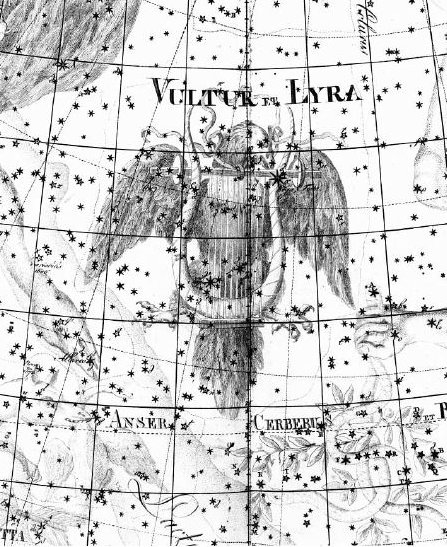 |
| 'Dec 2 (336 = 14 * 24) |
3 |
4 |
5 |
6 |
| DAY 283 |
284 (= 364 - 80) |
285 |
286 |
287 |
|
... A very detailed myth comes from the island of Nauru. In the beginning there was nothing but the sea, and above soared the Old-Spider. One day the Old-Spider found a giant clam, took it up, and tried to find if this object had any opening, but could find none. She tapped on it, and as it sounded hollow, she decided it was empty. By repeating a charm, she opened the two shells and slipped inside. She could see nothing, because the sun and the moon did not then exist; and then, she could not stand up because there was not enough room in the shellfish. Constantly hunting about she at last found a snail. To endow it with power she placed it under her arm, lay down and slept for three days. Then she let it free, and still hunting about she found another snail bigger than the first one, and treated it in the same way. Then she said to the first snail: 'Can you open this room a little, so that we can sit down?' The snail said it could, and opened the shell a little. Old-Spider then took the snail, placed it in the west of the shell, and made it into the moon. Then there was a little light, which allowed Old-Spider to see a big worm. At her request he opened the shell a little wider, and from the body of the worm flowed a salted sweat which collected in the lower half-shell and became the sea. Then he raised the upper half-shell very high, and it became the sky. Rigi, the worm, exhausted by this great effort, then died. Old-Spider then made the sun from the second snail, and placed it beside the lower half-shell, which became the earth ... |
| tupu te raau i te vai |
te moko |
te marama |
te kava |
manu rere |
te mauga hiku hia |
|
Tupu. 1. Shoot, sprout, bud; to sprout, to bud. 2. Pregnant: vî'e tupu (o te poki); to be conceived (of fetus in its mother's womb): he-tupu te poki i roto i te kopú o toona matu'a. Vanaga. To grow, to sprout, to germinate, to come forth, to conceive, pregnant, germ; mea tupu, plant; tupu ke avai, of rapid growth; tupu horahorau, precocious; hakatupu, to produce, to stimulate growth, to excite. P Pau.: fakatupu, to raise up, to create. Mgv.: tupu, to grow, to conceive, to be pregnant. Mq.: tupu, to grow, to sprout, to conceive. Ta.: tupu, to grow, to sprout. Churchill. Mgv.: Tupu, the best or worst, used of men or of bad qualities. Sa.: tupu, king. Ma.: tupu, social position, dignity. Churchill.
Kava. 1. Sour; salty: vai kava, saltwater, sea; te kava o te haíga, acrid underarm smell; tagata kava - tagata kakara i te kava, man with smelly armpits. 2. He-kava te haha, to be thirsty. 3. To turn sour, to become embittered, bad-tempered, exasperated (used with manava): tagata manava kava, bad-tempered, angry man. Vanaga. Bitter, salt; vai kava, brackish water; hakakava, to embalm; kavakava, acid, sharp, bitter, salt, spiritous, vinegar, poisonous, disagreeable; akavakava, to make sharp; hakakavakava, to make acid. P Pau.: kava, disagreeable to the taste; kavakava, acid, sharp. Mgv.: kava, to be bitter, sour, acid, salt. Mq.: kava, bitter. Ta.: ava, bitter, acid, salt. Kavahia: 1. Comfort, comfortable, to feast; hakakavahia, comfort, comfortable. 2. Repulsive (of food), disgusted; hakakavahia, repulsion. Kavakava, rib; moi kavakava, a house god G. P Mgv.: vakavaka, the breast. Mq.: vakavaka, vaávaá, rib. Ma.: wakawaka, parallel ridges. We shall need all the available material in order to determine the germ sense of this word. Sa.: va'ava'a, the breast-bone of a bird; fa'ava'a, the frame as of a slate. To.: vakavaka, the side. Fu.: vakavaka, the side below the armpit. Ha.: hoowaa, to make furrows. In all these we may see the idea of ridge or depression, or of both, as primal (Rapanui, Samoa, Marquesas, Maori, Hawaii), and as secondary the part of the body where such appearances is common (Mangareva, Tonga, Futuna). Churchill. Mgv.: kava, the pepper plant and the drink made therefrom. Ta.: ava, id. Mq.: kava, id. Sa.: 'ava, id. Ma.: kawa, a pepper. Kavakava, a fish. Sa.: 'ava'ava, id. Kavapui, a tree. Ta.: avapuhi, a fragrant plant. Mq.: kavapui, wild ginger. Sa.: 'avapui, id. Ha.: awapuhi, id. Churchill. Mq.: ava, a small fish of sweet water. Sa.. 'ava'ava, a small fish. Ha.: awa, a fish. Kakava, burnt. Sa.: 'a'ava, very hot. Churchill. |
 |
 |
 |
 |
 |
 |
| Ca11-4 (288 = 12 * 24) |
Ca11-5 |
Ca11-6 |
Ca11-7 |
Ca11-8 |
Ca11-9 |
| CLOSE TO THE SUN: |
| July 4 |
5 |
6 |
7 |
8 |
9 (190) |
|
ω Gemini (105.4), ALZIRR (Button) = ξ Gemini (105.7), MULIPHEIN (Oaths) = γ Canis Majoris (105.8), MEKBUDA (Contracted) = ζ Gemini (105.9)
*64.0 = *105.4 - *41.4 |
7h (106.5)
no star listed (106) |
WEZEN (Weight) = δ Canis Majoris (107.1), τ Gemini (107.7), δ Monocerotis (107.9) |
no star listed (108) |
λ Gemini (109.4), WASAT (Middle) = δ Gemini (109.8)
*68.0 = *109.4 - *41.4 |
no star listed (110) |
| DAY 105 |
106 |
107 |
108 |
109 |
110 |
| CLOSE TO THE FULL MOON: |
| Jan 3 |
4 |
5 |
6 |
7 |
8 |
|
Al Na'ām-18 (Ostriches) / Uttara Ashadha-21 (Elephant tusk, small bed)
NUNKI = σ Sagittarii (288.4), ζ Cor. Austr. (288.5), MANUBRIUM = ο Sagittarii (288.8), ζ Aquilae (288.9)
*247.0 = *288.4 - *41.4 |
19h (289.2)
λ Aquilae (Ant.) (289.1), γ Cor. Austr (289.3), τ Sagittarii (289.4), ι Lyrae (289.5), δ Cor. Austr. (289.8)
*248.0 = *289.4 - *41.4 |
Al Baldah-19 (City)
AL BALDAH = π Sagittarii, ALPHEKKA (Dish) MERIDIANA = α Cor. Austr. (290.1), β Cor. Austr. (290.2) |
ALADFAR = η Lyrae (291.1), NODUS II = δ Draconis (291.5), ψ Sagittarii (291.6), τ Draconis (291.7), θ Lyrae (291.8) |
ω Aquilae (292.1), ρ Sagittarii (292.6), υ Sagittarii (292.7) |
π Draconis, ARKAB PRIOR = β¹ Sagittarii (293.0), ARKAB POSTERIOR = β² Sagittarii, ALRAMI (The Archer) = α Sagittarii (293.2), χ Sagittarii (293.6) |
| 'Dec 7 |
8 |
9 |
10 |
11 (345) |
12 |
| DAY 288 |
289 |
290 |
291 |
292 |
293 |
|
Tradition told that the Sea began at Nunki: ... This [σ Sagittarii] has been identified with Nunki of the Euphratean Tablet of the Thirty Stars, the Star of the Proclamation of the Sea, this Sea being the quarter occupied by Aquarius, Capricornus, Delphinus, Pisces, and Pisces Australis. It is the same space in the sky that Aratos designated as Water ...
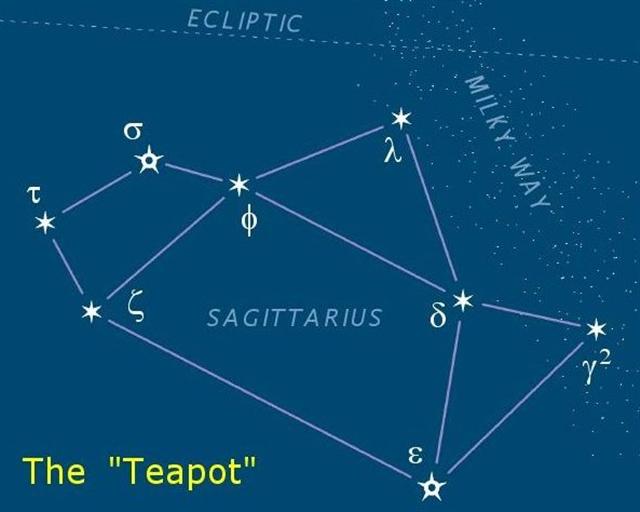
|
Since that ancient time the fixed stars would have moved 80 days forward in the Sun calendar and day 104 + 80 = 184 was July 4.
38 days ahead (= 28 + 10, cfr the number of glyphs in the so-called Moon calendar) counted (hia) from Ca11-3 (287 → i.e. 288 if we should count also day zero) will bring us to glyph number 287 (288) + 38 = 325 (326):
| oho te vae |
ki hukiga o te ra |
kua oho ra |
kua ere te tagata - te hetu |
|
Hetu. Hetu 1. To (make) sound; figuratively:
famous, renowned. 2. To crumble into embers (of a bonfire). Hetu'u. Star, planet; hetu'u popohaga
morning star; hetu'u ahiahi evening star; hetu'u viri meteorite. Vanaga. Hetu 1. Star (heetuu); hetu rere, meteor; hetu pupura, planet. P Pau.: hetu, star. Mgv.: etu, id. Mq.: fetu, hetu, id. Ta.: fetu, fetia, id. The alternative form fetia in Tahiti, now the only one in common use, need not be regarded as an anomaly in mutation. It seems to derive from Paumotu fetika, a planet. Its introduction into Tahiti is due to the fashion of accepting Paumotu vocables which arose when the house of Pomare came into power. 2. Capital letter (? he tu). 3. To amuse. 4. To stamp the feet. Hetuhetu, to calk, to strike the water. Hetuke, sea urchin. Churchill. |
 |
 |
 |
 |
| Ca12-9 (325) |
Ca12-10 |
Ca12-11 |
Ca12-12 |
| CLOSE TO THE SUN: |
| Aug 10 |
11 |
12 |
13 (225 = 15 * 15) |
|
Star-25 (Horse) / ANA-HEU-HEU-PO-5 (Pillar where debates were held)
ALPHARD (The Horse) = α Hydrae (142.3), ω Leonis (142.6), τ¹ Hydrae (142.7) |
Al Tarf-7 (The End)
ψ Velorum (143.3), ALTERF = λ Leonis, τ² Hydrae (143.4), ξ Leonis (143.5)
*102.0 = *143.4 - *41.4 |
A Hydrae (144.1)
VEGA (α Lyrae) |
UKDAH (Knot) = ι Hydrae (145.4), κ Hydrae (145.5), SUBRA = ο Leonis (145.8) *104.0 = *145.4 - *41.4 = *288 - *184 |
| 'July 14 |
(196 → Pollux) |
16 |
17 |
| DAY 142 |
143 |
144 |
145 (= 290 / 2) |
| CLOSE TO THE FULL MOON: |
| Febr 9 (40) |
10 |
11 |
12 (408) |
|
... On February 9 the Chorti Ah K'in, 'diviners', begin the agricultural year. Both the 260-day cycle and the solar year are used in setting dates for religious and agricultural ceremonies, especially when those rituals fall at the same time in both calendars. The ceremony begins when the diviners go to a sacred spring where they choose five stones with the proper shape and color. These stones will mark the five positions of the sacred cosmogram created by the ritual. When the stones are brought back to the ceremonial house, two diviners start the ritual by placing the stones on a table in a careful pattern that reproduces the schematic of the universe. At the same time, helpers under the table replace last year's diagram with the new one. They believe that by placing the cosmic diagram under the base of God at the center of the world they demonstrate that God dominates the universe. The priests place the stones in a very particular order. First the stone that corresponds to the sun in the eastern, sunrise position of summer solstice is set down; then the stone corresponding to the western, sunset position of the same solstice. This is followed by stones representing the western, sunset position of the winter solstice, then its eastern, sunrise position. Together these four stones form a square. They sit at the four corners of the square just as we saw in the Creation story from the Classic period and in the Popol Vuh. Finally, the center stone is placed to form the ancient five-point sign modern researchers called the quincunx ...

|
|
Al Sa'd al Su'ud-22 (Luckiest of the Lucky) / Emptiness-11 (Rat)
TSIN = 36 Capricorni (325.2), ALPHIRK (The Flock) = β Cephei (325.7), SADALSUD = β Aquarii, ξ Gruis (325.9) |
no star listed (326) |
CASTRA
= ε Capricorni
(327.2),
BUNDA = ξ
Aquarii
(327.5)
SIRIUS (α
Canis Majoris) |
Mahar sha hi-na Shahū-26 (Western One in the Tail of the Goat)
NASHIRA =
γ
Capricorni
(328.0),
ν
Oct. (328.3), AZELFAFAGE
=
π¹
Cygni,
κ
Capricorni (328.7) |
| 'Jan 13 (378 → Saturn) |
14 |
15 |
16 |
| DAY 325 (→ 3-25) |
326 |
327 |
328 |
|
Synodic cycles |
|
Mercury |
115.88 |
|
Venus |
583.92 |
|
Earth |
364.0 = π * 115.88 |
|
Mars |
779.96 |
|
Jupiter |
398.88 |
|
Saturn |
378.09 |
|
Uranus |
369.66 |
|
| oho te vae |
te vai okahia |
te henua |
|
Oka. 1. Lever, pole; to dig holes in the ground with a sharpened stick, as was done in ancient times to plant vegetables; used generally in the meaning of making plantations. 2. The four sideways poles supporting a hare paega. Okaoka, to jab, to pierce, to prick repeatedly. Vanaga. Digging stick, stake, joist; to prick, to pierce, to stick a thing into, to drive into, to slaughter, to assassinate; kona oka kai, plantation; pahu oka, a drawer. Okaoka, a fork, to prick, to dig. Okahia, to prick. Churchill. |
 |
 |
 |
| Ca12-13 (329) |
Ca12-14 |
Ca12-15 |
| CLOSE TO THE SUN: |
| Aug 14 |
15 |
16 (228) |
|
Rishu A.-13 (Head of the Lion)
ψ Leonis (146.4), RAS ELASET AUSTRALIS = ε Leonis (146.6)
*105.0 = *146.4 - *41.4 |
VATHORZ PRIOR = υ Carinae (147.9) |
υ¹ Hydrae (148.4), RAS ELASET BOREALIS (Northern Head of the Lion) = μ Leonis (148.7)
*107.0 = *148.4 - *41.4 |
| CLOSE TO THE FULL MOON: |
| Febr 13 |
14 (227 + 183 = 410) |
15 |
| 'Jan 17 |
18 (383 = 13 * 29½ - ½) |
19 |
|
Arkat sha hi-na Shahū-27 (Eastern One in the Tail of the Goat)
ENIF (The Nose) =
ε
Pegasi, ERAKIS =
μ
Cephei
(329.2),
46 CAPRICORNI,
JIH (the Sun) = κ
Pegasi
(329.3),
ι
Piscis Austrini (329.4),
λ
Capricorni (329.6),
ν
Cephei (329.7),
DENEB ALGIEDI =
δ
Capricorni
(329.8)
*288.0 = *329.4 - *41.4 |
θ
Piscis Austrini (330.1),
λ
Oct.
(330.7) |
KUH (Weeping) =
μ
Capricorni
(331.4),
γ
Gruis (331.5)
*290.0 = *331.4 - *41.4 |
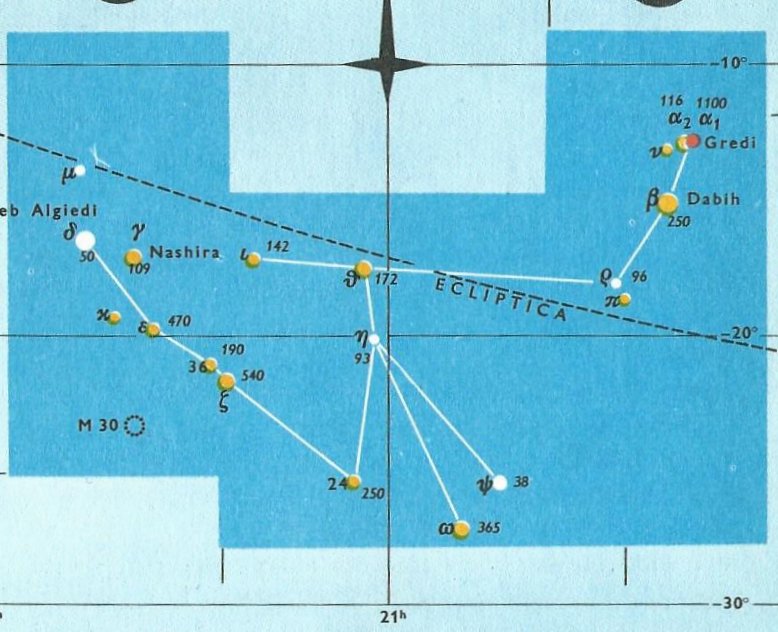 |
| oho te vae |
kua pure ia |
|
Pure. Cowrie (Cypraea caput draconis); pure vaka, another type of cowrie, which can float on the sea like a diminutive boat (vaka). Vanaga. 1. To pray, to supplicate, invocation, prayer; hare pure, church, chapel; tae pure, irreverence; purega, prayer P Pau., Mgv., Mq., Ta.: pure, to pray. In Samoa, Tonga, Niuē, Futuna, Uvea, pule means to command. 2. A shell T. P Pau.: hakapurepure, to dye, to color. Mq.: pué, the porcelain shell. Ta.: pure, a mark. Purepure, spotted, dappled; ragi purepure, dappled sky. Purepurea, spotted. P Pau.: hakapurepure, to dye, to color. Mgv.: purepure, printed cloth; akapurepure, to paint in different colors. Mq.: puépué, covered with pale scars. Ta.: purepure, spotted, dappled. Churchill. Pureva, rock, stone (small enough to be thrown by hand). Vanaga. Pureva, to throw a stone. Ta.: Pureva, to be on the eve of going. Ha.: puleva, to float here and there. Churchill. Pau.: Pure-hiva, a butterfly. Mgv.: pure-rehue, id. Ta.: pure-hua, a moth. Mq.: pure-hua, id. Ma.: pure-hua, id. Churchill. |
 |
 |
| Ca12-16 |
Ca12-17 (333) |
| CLOSE TO THE SUN: |
| Aug 17 |
18 (230) |
| TSEEN KE (Heaven's Record) = φ Velorum (149.9) |
ν Leonis (150.1), π Leonis (150.6) |
| CLOSE TO THE FULL MOON: |
| Febr 16 |
17 (413 = 14 * 29½) |
|
no
star listed (332) |
η
Piscis Austrini (333.4)
*292.0 = *333.4 - *41.4 |
| 'Jan 20 |
21 (386) |
| oho te vae |
koia ra kua haga hia |
kua moe |
 |
 |
 |
| Ca12-18 |
Ca12-19 |
Ca12-20 (336 = 4 * 84) |
| CLOSE TO THE SUN: |
| Aug 19 |
20 (232) |
21 |
| υ² Hydrae (151.8) |
Al Jabhah-8 (Forehead) / Maghā-10 (Bountiful) / Sharru-14 (King)
10h (152.2)
AL JABHAH = η Leonis (152.4), REGULUS (Little KIng) = α Leonis (152.7)*111.0 = *152.4 - *41.4 |
λ Hydrae (153.2) |
| CLOSE TO THE FULL MOON: |
| Febr 18 |
19 |
20 (416 = 4 * 104) |
|
22h (334.8)
KAE UH (Roof) = ο Aquarii (334.0), AL KURHAH (White Spot) = ξ Cephei (334.4), SADALMELIK (Lucky King) = α Aquarii, AL DHANAB (The Tail) = λ Gruis (334.6), ι Aquarii, ν Pegasi (334.7)*293.0 = *334.4 - *41.4 |
ι Pegasi (335.0), ALNAIR (The Bright One) = α Gruis (335.1), μ Piscis Austrini, υ Piscis Austrini (335.3), WOO (Pestle) = π Pegasi (335.7), BAHAM = θ Pegasi, τ Piscis Austrini (335.8) |
ζ Cephei (336.2), λ Cephei (336.3), -/270 Lac. (336.7), λ Piscis Austrini (336.8) |
| 'Jan 22 |
23 (388) |
24 |
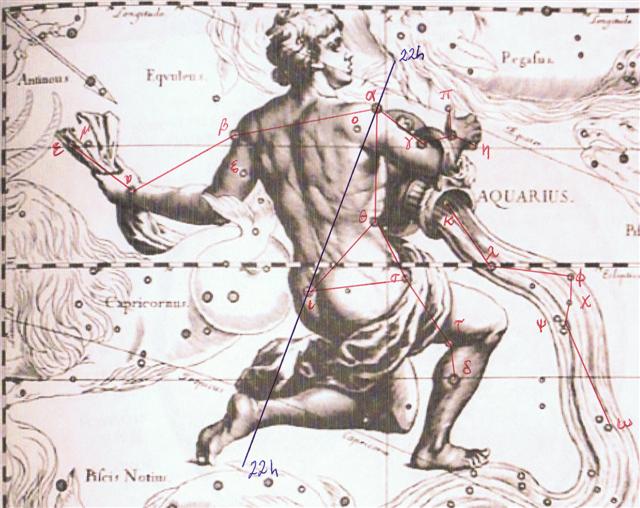
| te niu ku hakatu ua |
te maitaki - kupega tuku hia mai |
mata hakatuu |
|
Niu. Palm tree, coconut tree; hua niu, coconut. Vanaga. Coconut, palm, spinning top. P Pau., Ta.: niu, coconut. Mgv.: niu, a top; niu mea, coconut. Mq.: niu, coconut, a top. Churchill.The fruit of miro. Buck. T. 1. Coconut palm. 2. Sign for peace. Henry- The sense of top lies in the fact that the bud end of a coconut shell is used for spinning, both in the sport of children and as a means of applying to island life the practical side of the doctrine of chances. Thus it may be that in New Zealand, in latitudes higher than are grateful to the coconut, the divination sense has persisted even to different implements whereby the arbitrament of fate may be declared. Churchill 2. |
 |
 |
 |
| Ca12-21 |
Ca12-22 |
Ca12-23 (339) |
| CLOSE TO THE SUN: |
| Aug 22 |
23 |
24 (236 = 8 * 29½) |
| ADHAFERA = ζ Leonis, TANIA BOREALIS (Northern Gazelle) = λ Ursae Majoris, SIMIRAM = ω Carinae (154.7) |
ALGIEBA (The Mane) = γ Leonis, q Carinae (155.5) |
TANIA AUSTRALIS (Southern Gazelle) = μ Ursae Majoris (156.0), GHOST OF JUPITER = NGC3242 Hydrae (156.8) |
|
... From a point a little to the west of ζ [Adhafera, ζ Leonis] and not much farther from γ - when first observed the radiant point was in Cancer - issue the Leonids, the meteor stream of November 9th to 17th, its maximum now occurring on the 13th to 14th, which about every thirty-three years has furnished such wonderful displays, the last in 1866 and the next due in 1899.
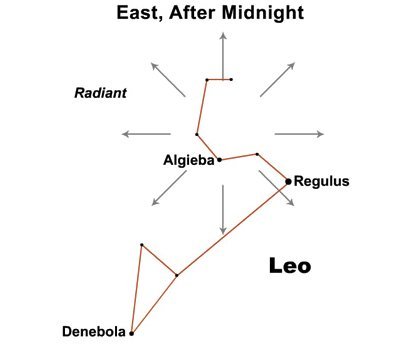
Their first noticed appearance may have been in the year 137, since which date the stream has completed fifty-two revolutions. According to Theophanes of Byzantium, the shower was seen from there in November, 472; but the late Professor Newton, our deservedly great authority on the whole subject of meteors, commenced his list of the Leonids with their appearance on the 13th of October, 902, the Arabian Year of the Stars, during the night of the death of King Ibrahim ben Ahmad, and added: It will be seen that all these showers are at intervals of a third of a century, that they are at a fixed day of the year, and that the day has moved steadily and uniformly along the calendar, at the rate of about a month in a thousand years ...
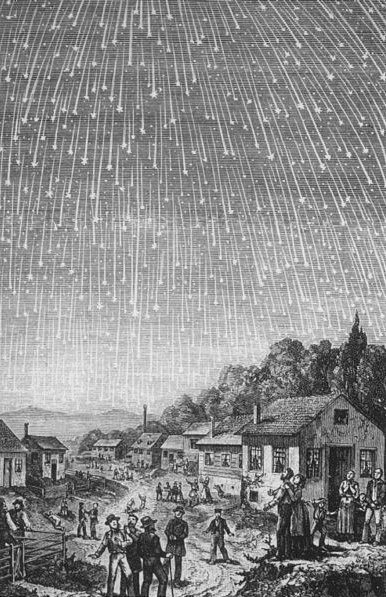
|
| CLOSE TO THE FULL MOON: |
| Febr 21 |
22 (418) |
Terminalia |
| 'Jan 25 |
26 |
27 (392 → Polaris) |
|
μ Gruis (337.0), ε Cephei (337.2), 1/325 Lac. (337.3), ANCHA (Hip) = θ Aquarii (337.4), ψ Oct. (337.5), α Tucanae (337.9)
*296.0 = *337.4 - *41.4 |
Al Sa'ad al Ahbiyah-23 (Lucky Star of Hidden Things) / Shatabisha-25 (Comprising a Hundred Physicians)
ε Oct. (338.1), ρ Aquarii (338.2), 2/365 Lac. (338.5), SADACHBIA = γ Aquarii (338.6), π Gruis (338.9) |
β/172 Lac. (339.2), 4/1100 Lac. (339.4), π Aquarii (339.5)
*298.0= *339.4 - *41.4
CASTOR (α Gemini) |
|
... Al Sa'd al Ahbiyah ... has been interpreted the Lucky Star of Hidden Things or Hiding-places, because when it emerged from the sun's rays all hidden worms and reptiles, buried during the preceding cold, creep out of their holes!
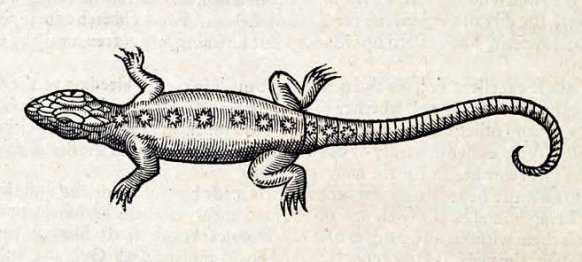
|
| te vae paupau |
te niu tutuu |
oho te rima o te niu |
a hagahaga |
 |
 |
 |
 |
| Ca12-24 |
Ca12-25 |
Ca12-26 (342) |
Ca12-27 |
| CLOSE TO THE SUN: |
| Aug 25 |
26 |
27 |
28 (240) |
|
Extended Net-26b (Ox)
μ Hydrae (157.1) |
Maru-sha-arkat-Sharru-15 (4th Son behind the King)
SHIR (Possessing Luminous Rays) = ρ Leonis (158.9) |
p Carinae (159.3) |
φ Hydrae (160.3) |
| DAY 157 (= 314 / 2) |
158 |
159 |
160 |
| CLOSE TO THE FULL MOON: |
| Febr 24 (420 = 365 + 55) |
25 |
26 |
27 |
| 'Jan 28 |
29 |
30 |
31 (396) |
|
δ Tucanae (340.1), ρ Cephei (340.2), ν
Gruis (340.3), ζ Aquarii, δ Gruis (340.4),
5/1100 Lac. (340.7), σ Aquarii, 6/650 Lac.
(340.9)
*299.0 = *340.4 - *41.4
PROCYON (α Canis Minoris) |
υ Oct. (341.0), α/91 Lac. (341.1),
HOMAN (Hero) = ζ Pegasi,
β Piscis Austrini (341.2), ν Tucanae
(341.5), υ Aquarii (341.9) |
η Aquarii (342.1), σ Gruis (342.4),
SITULA
(Water-jar) = κ Aquarii
(342.7)
*301.0 = *342.4 - *41.4 |
ε Piscis Austrini (343.5), ο Pegasi, β Gruis
(343.8) |
|
DAY 340 |
341 |
342 |
343 |
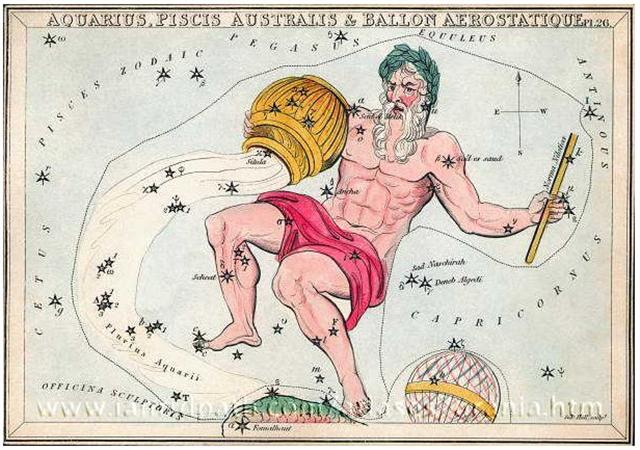 |
|






















